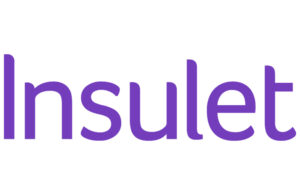 S&P Dow Jones Indices announced that Insulet (Nasdaq:PODD) is set to replace Silicon Valley Bank in the S&P 500 index.
S&P Dow Jones Indices announced that Insulet (Nasdaq:PODD) is set to replace Silicon Valley Bank in the S&P 500 index.
The change becomes effective prior to the opening of trading on Wednesday, March 15. It adds Insulet to the index tracking 500 large companies listed on stock exchanges in the U.S.
Silicon Valley Bank’s deletion from the S&P 500 follows the March 10 news that the FDIC took the bank into receivership. Therefore, Silicon Valley Bank became ineligible for inclusion into the index.
According to BTIG analyst Marie Thibault, Insulet has no exposure to the Silicon Valley Bank closure. U.S. banking regulators over the weekend took steps to reassure former SVB depositors — and shore up the banking sector in general.
After news of Insulet’s addition to the S&P 500, shares received a 6% boost after market hours Friday.They’ve since grown more than 7% to $300 apiece in morning trading today. MassDevice‘s MedTech 100 index, which includes stocks of the world’s largest medical device companies, was up slightly.
In a LinkedIn post, after the addition became effective, Insulet wrote:
“Insulet is proud to join the S&P 500 index, which tracks the performance of some of the largest U.S. publicly traded companies across 11 sectors.
“This is a testament to what our employees do every day to ensure our customers receive the best service and care, and our shareholders realize the incredible value Insulet has to offer.”
Minimal diabetes impact from Silicon Valley Bank closure (so far)
According to Thibault’s report, among diabetes technology developers under her coverage, the exposure to Silicon Valley Bank registered minimal.
In addition to Insulet, Thibault updated on Abbott, Dexcom and Embecta. She said Abbott’s “relationship with SIVB is minimal.” Both Dexcom and Embecta have no exposure to the Silicon Valley Bank, Thibault said.
Dexcom today issued a statement in response to speculation following the bank closure:
“Dexcom does not have material exposure to the developments at Silicon Valley Bank, including with respect to the company’s cash deposits. Although the company has worked successfully with SVB for many years, Dexcom does not have any exclusive banking relationship with SVB. As noted in Dexcom’s recent filing on form 10-K, the company currently retains approximately $2.5 billion in cash, cash equivalents, and short-term marketable securities. Approximately $2.7 million of this amount is held at SVB.”
This story was updated with a statement from Insulet on March 15.

